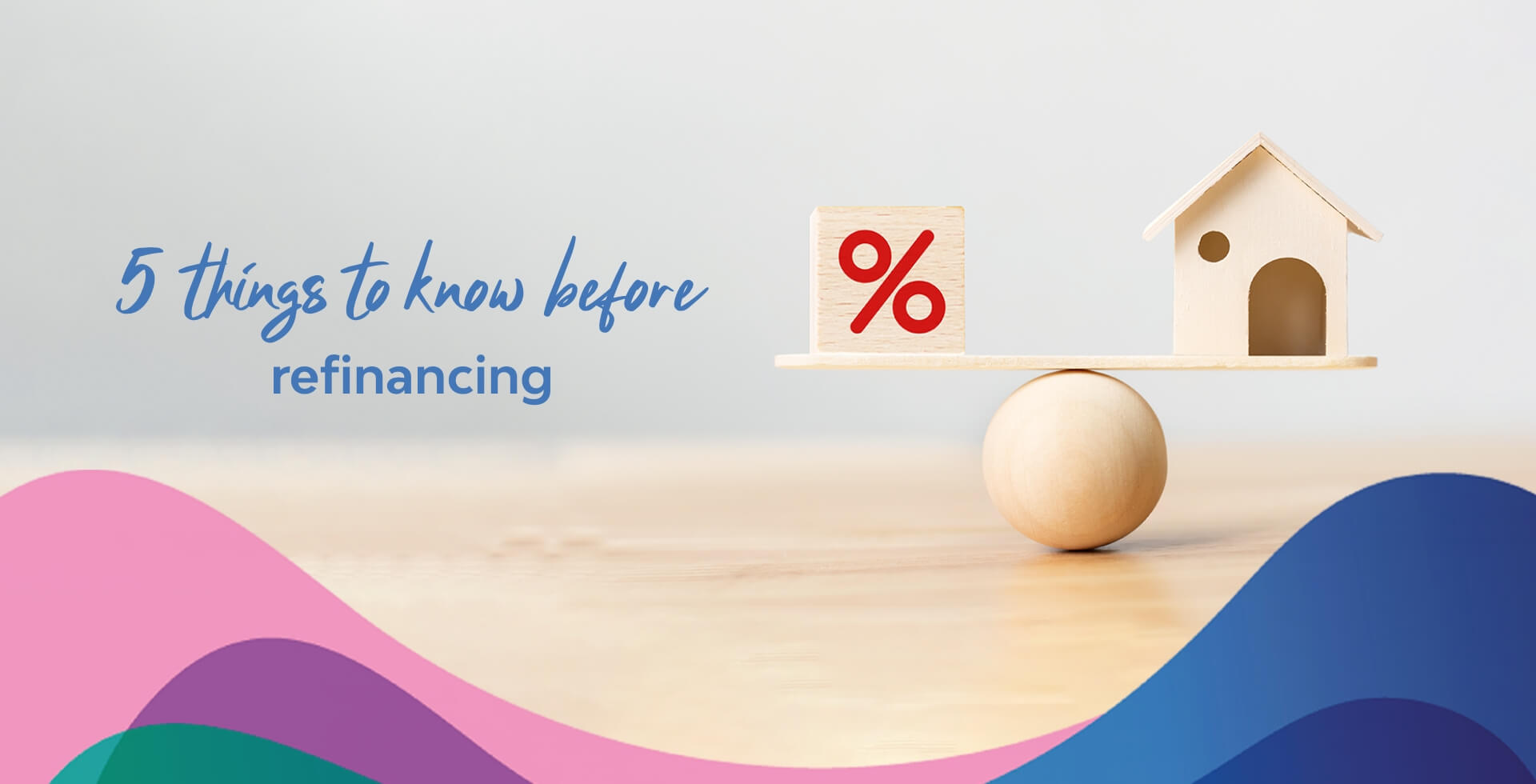
Does living in pandemic-stricken times get you brainstorming on ways to sustain a roof over your head? You want to reduce your monthly payments and you’re thinking of refinancing your home loan, but you don’t know where to start. What should you do?
Should you refinance your housing loan?
Refinancing means borrowing money from another (or the same) bank using a new loan to pay off your current loan, with different terms and conditions.
You may consider refinancing for the following reasons: (i) to secure lower interest rates or shorter term loans, (ii) to cash out your equity, (iii) to pay off other existing loans with the new loan, and (iv) to convert your current loan type; changing to a variable-rate loan is good when interest rates are declining, while converting to a fixed-rate loan works if your current interest rates are low and you want to pay the same rates in the future.
Here are some more useful tips before deciding to refinance your loan or mortgage:

Know your debt-to-income ratio and credit score
First off, you’ll need to assess your financial status by calculating your debt-to-income ratio to determine if you can handle more debt without burning a hole through your pocket. Banks generally favour a ratio of less than 30%.
For example,
Gross monthly income = RM4,000
Total monthly loan payments = RM1,200
Debt-to-income ratio = RM1,200 / RM4,000 x 100 = 30%
Besides that, check your credit scores via CTOS and CCRIS reports as banks tend to prefer a score above 700.
It’s also advisable to calculate when you would break even. A break-even point is achieved when your accumulated monthly savings exceed the new loan’s total costs.

Consider interest rates and payment duration
When refinancing, ask yourself what’s more important to you: lower interest or shorter loan repayment?
If you enjoy lower monthly instalments and don’t mind stretching the payment duration, choose the first option. If you prefer to pay off your loan sooner, the latter may be a better choice for you.

Calculate refinancing costs and mortgage lock-in period
When you refinance, expect closing costs including valuation fees, legal fees and stamp duty, which typically range from 3% to 6% of the total loan amount. Alternatively, you can opt for zero-cost refinancing, with no closing costs but higher interest. Some costs can be waived by the lenders, so unleash your bargaining skills for the best offer!
It is important to check if you’re confined to a lock-in period from your existing loan. If you are, the bank may charge a penalty if you decide to fully settle your loan payments earlier than the stipulated loan term (Yes, there is such a thing!). Recognising your lock-in period determines how soon you can start your refinancing process.

Senadi Hills, Iskandar Puteri
Evaluate your home’s equity
Banks tend to favour homeowners with higher equity when approving refinancing applications.
Equity refers to the amount you’d get if you sold your house today after subtracting your loan balance, which essentially entails the portion of your home you actually own.
For example,
You bought your house in 2019 for RM350,000.
Current house value = RM500,000
Current loan balance = RM300,000
Home equity = RM500,000 – RM300,000 = RM200,000
Before approving your refinancing application, the banks will calculate your loan-to-value ratio (LTV), which reveals your equity percentage and how much you still owe your current loan.
For example,
LTV = Current loan balance / Current house value x 100
(RM300,000 / RM500,000) x 100 = 60%
Your LTV is 60%, which means you have 40% equity in your home.
Simply put, your equity increases as you make more loan payments. Generally, banks prefer an LTV ratio of 80%, which means you must have an equity of at least 20%.
When you have equity in your home, you can opt for cash-out refinancing, which converts your equity to cash-in-hand, but you’ll ultimately pay a larger loan amount than before. This extra cash is ideally used for your home renovations to increase property value.

Compare different benefits offered by banks
There are several other perks to consider before refinancing; different banks offer different processing fees, loan tenures, loan limits, among others. It’s best to consult a banking expert or property advisor before deciding to refinance your mortgage or loan.
** Thinking of refinancing your home? Talk to the friendly UEM Sunrise Property Consultants who can connect you to our panel of trusted bankers.
6 Tips on How to Choose the Right Investment Property in Malaysia
With the current low interest rates and countless rebates on offer by property developers, it has never been a better time to invest in a property as a side hustle. But the question is, where do you begin?
Tips & Terms you should know when buying a home
How to stay upbeat during lockdown
Here are a few things you can do to look after your mental health and uplift your outlook when staying at home.








